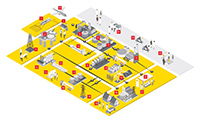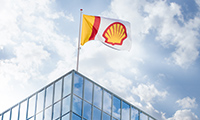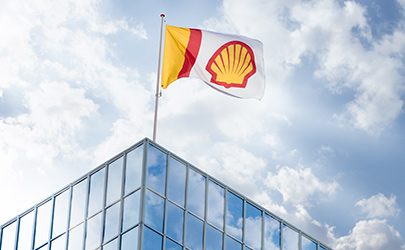Outlook
We launched our $25 billion share buyback programme in 2018, and we have completed about $15 billion of buybacks as of February 20, 2020. Our intention to complete the $25 billion share buyback programme is unchanged, but it is not likely to be feasible before the end of 2020. We will continue to monitor the evolving business environment and make decisions on further tranches of the share buyback programme on a quarterly basis.
Given the current macroeconomic conditions, we have announced a reduction in cash capital expenditure for 2020 to $20 billion or below from a planned level of around $25 billion. Following the successful delivery of our $30 billion divestment programme during 2016-18, divestments are expected to amount to more than $10 billion over the 2019-2020 period, but the timing depends on market conditions.
We fully support the Paris Agreement’s goal to keep the rise in global average temperature this century to well below two degrees Celsius above pre-industrial levels and to pursue efforts to limit the temperature increase even further to 1.5 degrees Celsius. We have set a long-term ambition to reduce the Net Carbon Footprint of our energy products, measured in grams of CO2 equivalent per megajoule consumed, by around 20% by 2035 and by around 50% by 2050, in pace with society. While our ambition is long term, we believe we must act today if we are to help society progress more quickly. In early 2019 we set an unconditional three-year target to reduce our Net Carbon Footprint by 2% to 3% compared with 2016. For the 2020 award, the target range is a 3-4% reduction in our Net Carbon Footprint against the 2016 baseline. It is intended that this target-setting will be done annually, with each year’s target covering either a three-year or five-year period.
Since the start of 2020 there has been a developing outbreak of COVID-19 (coronavirus). In the first quarter of 2020, we have not seen a material impact on our operations. As a result of COVID-19, we have seen macroeconomic uncertainty with regards to prices and demand for oil, gas and products. Furthermore, recent global developments and uncertainty in oil supply in March have caused further volatility in commodity markets. The scale and duration of these developments remain uncertain but could impact our earnings, cash flows and financial condition, and we are monitoring the situation closely as the virus spreads.
The statements in this “Outlook” section, including those related to our growth strategies and our expected or potential future cash flow from operations, organic free cash flow, share buybacks, capital investment, divestments, production and Net Carbon Footprint, are based on management’s current expectations and certain material assumptions and, accordingly, involve risks and uncertainties that could cause actual results, performance or events to differ materially from those expressed or implied herein.

Aerial view of road and Glengarry forest, Scotland, UK.
Forestry and Land Scotland is working with Shell UK to preserve and extend native woodland.
 Our businesses and organisation
Our businesses and organisation
 Overall highlights in 2019
Overall highlights in 2019
 Projects & Technology overview
Projects & Technology overview
 Financial data
Financial data
